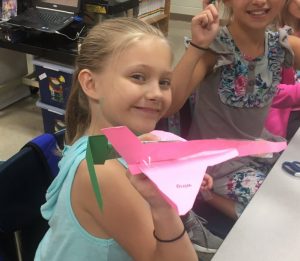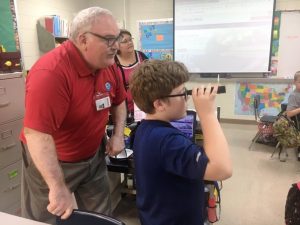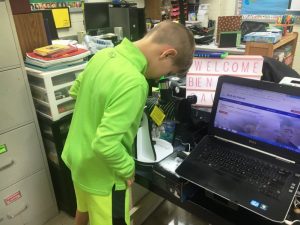October 4, 2018
By: Dwayne Page
STEM challenges are being introduced to students as young as elementary school age to help teach them about science, technology, engineering and math, all while building their brains and making connections through problem solving.
Fourth grade students in the Lottery Education for Afterschool Program (LEAPS) at Northside Elementary this week have had fun with aerospace education through STEM activities.
Captain Steven Glover of Cookeville, member of the Civil Air Patrol, Wednesday showed students the proper way to make paper gliders and roto motors. He also brought along a Celestron telescope for the kids to look through.
“The idea of aerospace education starts at this grade level and younger and we are doing hands on activities related to aerospace education. Today we have finished up a project that was started Monday making a glider properly and how we can make it change to fly differently,” said Captain Glover.
“We have also made a roto motor by using scissors, tape, and paper clips to convert a glider making it go in a rotary fashion, sort of like seeds that fall in a rotary fashion from trees in the spring or fall. This idea of hands on activities related to science, technology, education, and math and aerospace education is part of what the Civil Air Patrol does,” he said.
Melissa Roysdon, Northside Elementary LEAPS teacher, said students are also working on a project in conjunction with the upcoming International Fair.
“Students are working on turning their room into an International Space Station for this year’s International Fair in November. Other students will get to come in and look at the experiments these children have conducted through the After School Program. They will also see and hear things about the 16 different nations that take part in the actual International Space Station and how it relates to cultures around the world,” she said.






